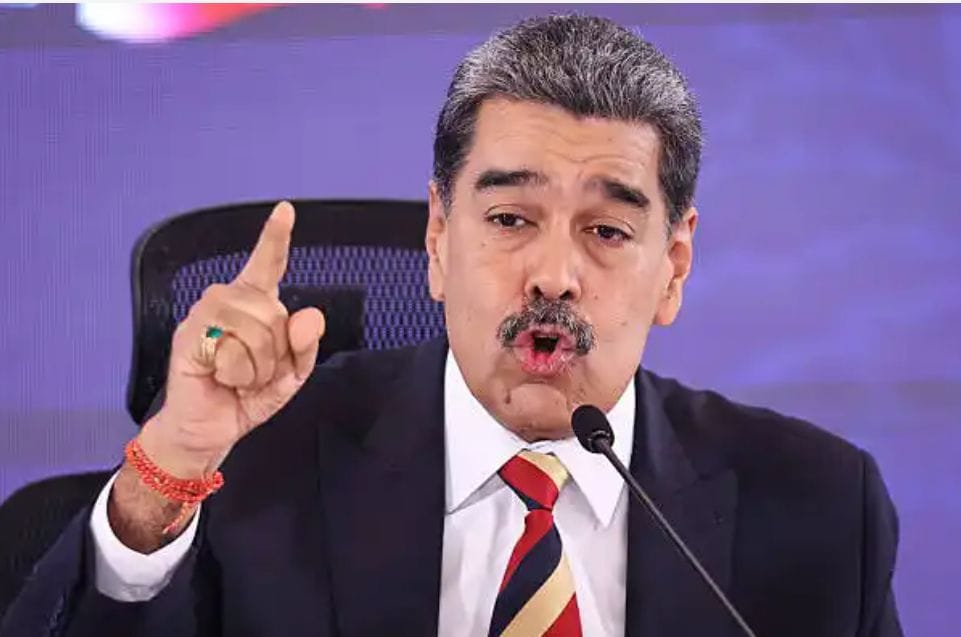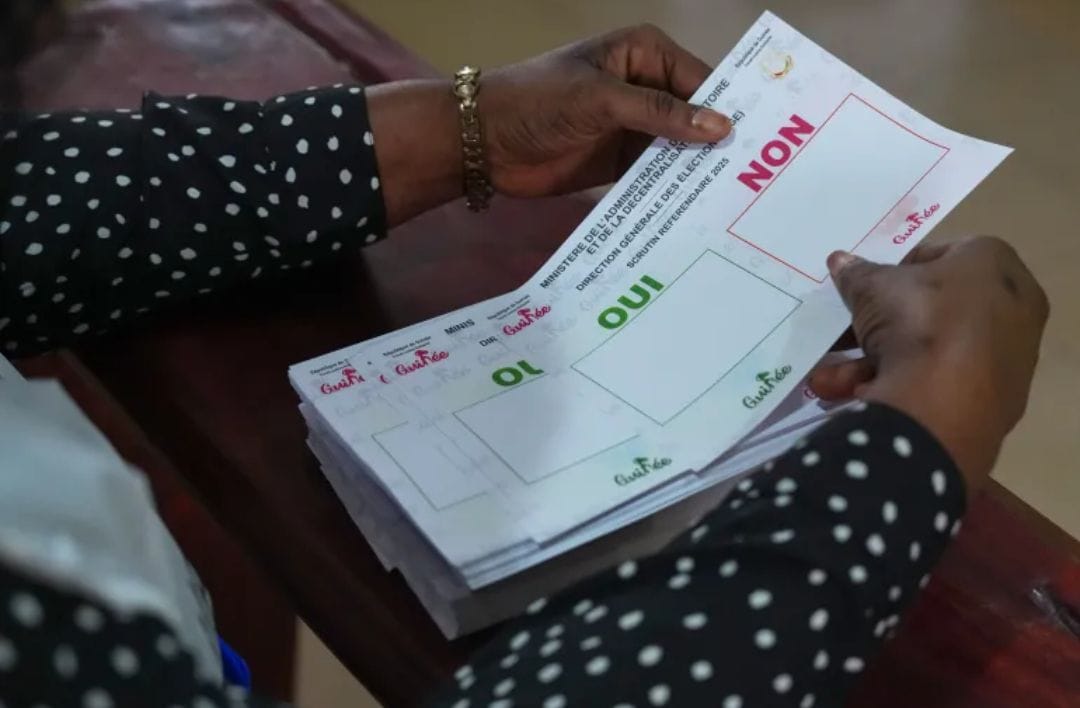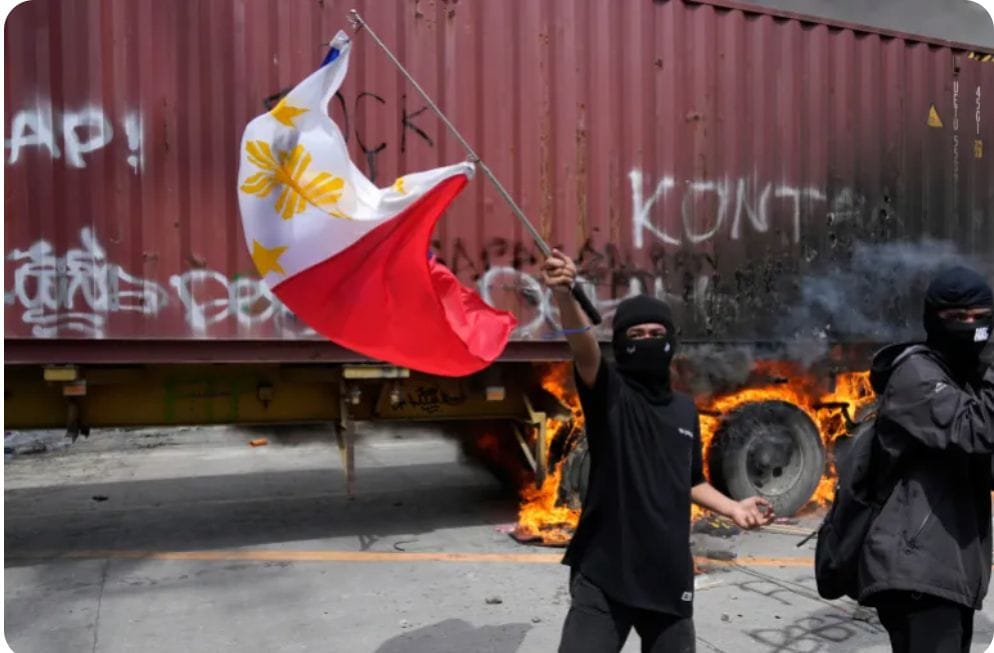The Venezuela crisis escalates as United States President Donald Trump issued a stern warning on Saturday, threatening the country with “incalculable consequences” if it did not immediately accept the return of immigrants he referred to as “prisoners.”
Speaking on his Truth Social platform, Trump declared,
“GET THEM THE HELL OUT OF OUR COUNTRY, RIGHT NOW, OR THE PRICE YOU PAY WILL BE INCALCULABLE!”
The warning comes amid rising tensions in the Caribbean and follows repeated confrontations over alleged drug trafficking and maritime security incidents.
Trump insisted that Venezuela had “forced” such people into the United States and claimed without evidence that “thousands of people have been badly hurt, and even killed, by these ‘Monsters.’”
The United States has deployed seven warships, a nuclear-powered submarine, and F-35 stealth fighters to international waters off Venezuela’s coast, supported by additional F-35s sent to Puerto Rico.
Officials in Washington maintain the deployment is part of an anti-drug operation, but legal analysts warn that the strikes could constitute extrajudicial killings.
In a separate incident, the US Navy targeted alleged drug vessels from Venezuela in the Caribbean, killing three men Trump described as “male narcoterrorists.”
Venezuelan authorities condemned the strikes, calling them an “undeclared war” and demanding a United Nations investigation into at least three attacks this month that have killed 17 people.
Amid the escalating Venezuela crisis, President Nicolas Maduro has repeatedly called for dialogue with the United States.
According to a letter obtained by news agencies, Maduro wrote to Trump, “President, I hope that together we can defeat the falsehoods that have sullied our relationship, which must be historic and peaceful.” He added, “We must engage in direct and frank talks to overcome media noise and fake news.”
Despite Maduro’s outreach, the US last month doubled its reward for information leading to his arrest to $50 million, citing alleged links to drug trafficking and criminal groups. Maduro has denied these allegations and mobilized over four million militia members to defend national sovereignty.
A drill led by the Bolivarian National Armed Forces trained civilians in weapons handling, a demonstration of Venezuela’s readiness in the face of mounting external threats.
The Venezuela crisis escalates further as the country faces growing economic and social pressure. Maduro’s government has warned that continued US strikes could provoke broader instability in the Caribbean region.
“Without any justification, these military operations threaten the lives of our people,” Maduro said, criticizing the closure of his YouTube channel at a time when Washington intensified hybrid warfare operations against Venezuela.
International observers have expressed concern over the escalation. Analysts highlight that the Venezuela crisis represents not only a clash over drug enforcement but also a symbolic confrontation of sovereignty and regional power.
“The United States seems determined to pressure Venezuela through coercive means, but the Venezuelan government remains defiant,” said one political analyst monitoring Latin America.
Trump has maintained that his actions are part of a broader effort to combat narcotics trafficking, asserting, “We are targeting the vessels that pose the greatest threat to our citizens.
The consequences of ignoring this are incalculable.” Yet, critics argue that the military build-up and aggressive rhetoric could worsen tensions and provoke unintended consequences, making the Venezuela crisis increasingly perilous.
Venezuelan officials continue to call for a diplomatic resolution. “We are open to talks, but our sovereignty is non-negotiable,” a senior government official said.
Maduro has proposed additional negotiations with the US, emphasizing that peaceful solutions are preferable to escalation, even as Trump’s warnings suggest otherwise.

The unfolding Venezuela crisis has also drawn attention from regional leaders. Countries across Latin America have expressed concern over the potential for wider conflict and the humanitarian implications of ongoing US military operations.
Human rights advocates stress that any further escalation could endanger civilian populations and exacerbate the country’s already fragile social and economic conditions.
Public sentiment in Venezuela remains defiant. Citizens have rallied in support of Maduro, waving national flags and holding banners denouncing foreign intervention. “We will not bow to threats,” one demonstrator told reporters, echoing the sentiment shared widely among Venezuelans amid the intensifying Venezuela crisis.
As the situation develops, both Washington and Caracas are under scrutiny for their next moves. The Venezuela crisis escalates daily, reflecting a tense standoff where rhetoric, military deployments, and diplomatic maneuvers intertwine. Trump’s insistence on an “incalculable price” contrasts sharply with Maduro’s calls for dialogue, leaving the region on edge.
With multiple incidents at sea and repeated threats, experts warn that miscalculations on either side could trigger unintended escalation. “The stakes are incredibly high,” said a geopolitical analyst, noting that the Venezuela crisis could have ripple effects across the Caribbean and beyond if not managed carefully.
In summary, the Venezuela crisis escalates as Trump threatens an incalculable price over prisoners, reinforcing a pattern of tension between the US and Caracas.
Direct military actions, diplomatic outreach, and public demonstrations all play a role in shaping the unfolding situation. The world watches closely, aware that the resolution—or further deterioration—of the Venezuela crisis will carry significant consequences for regional stability and international relations.


